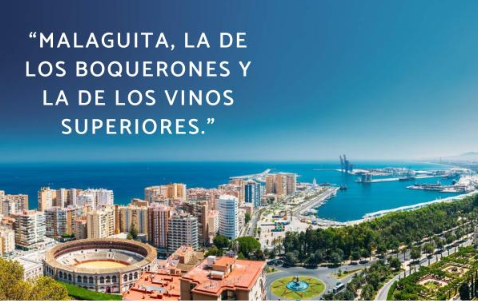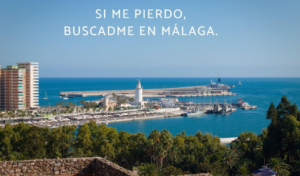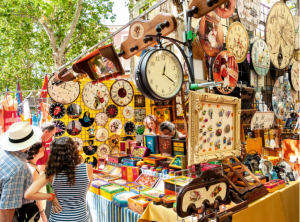If you’re in Málaga, sooner or later you’ll overhear a conversation that, even though it’s in Spanish, might sound like a completely different language. That’s because Malagueños have a very unique way of speaking! Their local expressions, their accent, and that characteristic touch of humor are all part of the charm of this Andalusian city.
In this article by MaestroMío, we invite you to discover some of the funniest and most curious expresiones malagueñas, so you can understand (and laugh) like a true boquerón, which, by the way, is the colloquial nickname for people from Málaga.
What is a “boquerón”?

Before diving into the expressions, let’s start with one of the most important: boquerón. While it literally means “anchovy,” a typical Mediterranean fish, in Málaga it’s also a loving way to refer to someone born in the city. So, if someone says “¡Soy boquerón!”, now you know they’re from Málaga and proud of it.
The most Malagueños expressions (and what they mean)
1. “Malaje”
A person with a bad temper, unpleasant mood, or someone unfriendly and rude.
Example: “No quiero salir con ese grupo, hay un chaval que es un malaje que no veas.”
2. “Estar al liquindoi”
To be attentive, carefully watching something. Some theories suggest it comes from the English phrase “looking do it” (influence of the English in Andalusian ports).
Example: “Quédate al liquindoi por si viene el jefe.”
3. “¡Qué pechá!”
Used to say that something was excessive: eating, laughing, working, etc.
Example: “Me he dado una pechá de reír contigo.”
4. “Merdellón”
A colloquial and derogatory word to describe someone vulgar, poorly dressed, and lacking manners.
Example: “No seas merdellón y compórtate, que estamos en una boda.”
5. “¡Jopo!”
A Malagueño way of saying “Get out of here!” Used to send someone away or express annoyance.
Example: “¡Jopo, que estoy cansado de escucharte quejarte!”
6. “Abarrotao”
Means a place is completely packed with people or things, leaving no free space.
Example: “El centro de Málaga estaba abarrotao durante la Feria.”
Why learn local expressions?
Learning these expressions not only helps you understand Malagueños better, but also allows you to connect more deeply with the culture. Plus, using them will make you sound more natural if you’re learning Spanish, and you’ll definitely make locals smile!
Tips to use them like a pro
- Listen first. Notice the context in which they’re used before trying them out.
- Use them with humor. Many of these expressions are said jokingly or with affection.
- Don’t force the accent. You don’t need to imitate the Andalusian accent to use them (but if it sticks… even better!).
So now you know: if you come to study Spanish with us at MaestroMío in Málaga, you won’t just learn grammar and vocabulary. You’ll also discover the real Spanish — the one from the south, the one you hear on the streets.
Are you ready to learn Spanish in Málaga and speak like a true boquerón?






